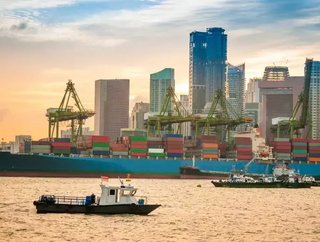MPA Singapore and IBM to push ahead with new maritime and ports analytics and data scheme

The Maritime and Port Authority of Singapore (MPA) and IBM are to begin rolling out a new analytics and data scheme aimed at improving maritime and port operations.
At the opening of the Safety@Sea, the two announced that they have jointly completed the pilot trial of three modules under the MPA-IBM SAFER project.
Project SAFER, derived from “Sense-making Analytics For maritime Event Recognition,” is a collaboration between MPA and IBM to develop and test new analytics-based technologies, aimed at improving maritime and port operations to support increasing Singapore’s growth in vessel traffic.
Altogether, there are seven modules under Project SAFER which offer a host of new capabilities for automating and increasing the accuracy of critical tasks that previously relied on human observation, reporting, Very High Frequency (VHF) communication, and data entry. These seven modules include:
- Automated movement detection
- Infringement analytics
- Pilot boarding detection
- Bunkering analytics
- Prohibited area analytics
- Vessel traffic arrival prediction
- Utilisation detection and prediction
The pilot trial of the three modules that have been completed include automated movement detection, infringement analytics and pilot boarding detection. The rest of the modules will be rolled out by January 2018.
“We will continue to develop our digital strategies through the use of data analytics and machine learning technologies to optimise our port operations and enforcement to meet existing as well as future demands,” said Mr Andrew Tan, Chief Executive of MPA.
SEE ALSO:
-
UAE joins battle for Category B membership of International Maritime Organization
-
APM Terminals acquires Grup Maritim TCB and its 11 container terminals
-
ISS signs marine contract with Technip for Rashid Port project in Dubai
“The SAFER project will enable us to reap immediate benefits especially in the areas of next-generation port enforcement and monitoring of vessel movements.”
Robert Morris, Vice President, Global Labs, IBM Research: “AI is transforming every industry and the marine domain is no exception. The SAFER solution is an example of how IBM's AI research for business is supplementing and increasing human capacity by making our waterways and sea lanes safer and more efficient.”
MPA and IBM are still developing and testing the other four modules to provide advanced information on traffic density within Singapore port waters; detect illegal bunkering activities; detect vessels moving into prohibited areas; and predict vessel arrival time.
- Could Schneider’s Offshore Charging Transform Shipping?Sustainability
- Top 10: Supply Chain Risk Management StrategiesSupply Chain Risk Management
- Alteryx and Snowflake: Redefining Supply Chain Data InsightDigital Supply Chain
- Customer-Centricity in Supply Chain with Alteryx & SnowflakeDigital Supply Chain






